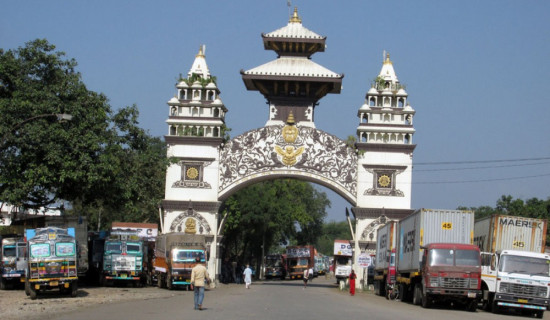- Sunday, 15 February 2026
The Dangers Of Media Sensationalism
Media trials have been increasingly prevalent in Nepal in recent years, impacting public opinion and court cases and sometimes implicating individuals. Sensationalism and speculative reporting are common features of media trials, which can have a significant impact on the legal system. There are serious worries about this phenomenon's effects on the justice system's fairness, which are frequently fuelled by sensationalism and the desire for breaking news. There has been a noticeable increase in high-profile cases in Nepal where public opinion has been significantly shaped by media trials.
Although the media is an essential watchdog, there are worries about how this may affect just legal proceedings due to the hazy boundaries between fact-finding and public opinion advocacy. Sensationalising court proceedings in the public eye, or media trials, have become a divisive topic on a global scale. Concerns regarding possible effects on the incrimination process have been raised in Nepal due to the interaction between the legal system and the media. People are frequently implicated in media trials before they even get a chance to appear in court.
Sensational storylines
The media's tendency to sensationalise situations can breed prejudice, skewing public opinion and thus endangering the accused's right to a fair trial. The ethical bounds of journalism are called into question by this occurrence, as are the wider ramifications for the legal system. Media trials have the power to influence public opinion before a court renders a decision since they are marked by extensive coverage and discussion on legal matters by news outlets. This impact may unintentionally result in the incrimination of parties to legal procedures.
The way that media coverage and the legal system interact has generated discussion over the moral bounds of journalism and how it affects the rule of law. The possibility of skewed reporting, in which media outlets favour sensational storylines over impartial journalism, is one of the main obstacles. This prejudice may contribute to the emergence of a biased environment, which could hinder the ability of defendants to get a fair trial. The public's perception of an individual's guilt may arise even prior to the conclusion of judicial proceedings, so undermining the premise of innocent until proven guilty.
In addition, law enforcement officials may be compelled to rush investigations or make decisions based on public opinion rather than a careful review of the evidence due to the pressure put on them by media trials. This may result in hasty decisions and, occasionally, the false incrimination of innocent people. The ramifications of media trials that result in incrimination extend beyond the realm of law. Premature public judgments can lead to psychological discomfort, reputational harm, and social stigmatisation. The impact of media trials on the lives of people involved cannot be overstated in a society where the presumption of innocence is a fundamental component of justice.
Beyond specific cases, media trials have a significant effect on incrimination. It may cause individuals to lose faith in the impartiality and fairness of court processes, which could undermine public confidence in the judicial system. The deterioration of trust has the potential to significantly impact the stability of the legal system and the rule of law. Addressing this issue calls for a multifaceted strategy. It is imperative that media controls be strengthened in order to stop the spread of unfounded viewpoints and unverified facts.
In conclusion, the increase in media trials that result in incrimination in Nepal highlights the urgent need for a careful analysis of the interaction between the media and the legal system. In the search for truth and justice, maintaining the values of impartiality, fairness, and the rule of law requires finding the correct balance. The connection in Nepal between media trials and incrimination highlights the necessity of a thorough reassessment of the moral and legal frameworks controlling media coverage of court cases.
Responsible reporting
Finding the ideal balance will uphold due process and fairness in society while safeguarding individual rights and boosting public confidence in the legal system. The fairness of legal proceedings in Nepal may be jeopardised by media trials, which could have an impact on case outcomes and the lives of individuals involved. To guarantee that justice is administered impartially and free from undue influence, it is imperative to strike a balance between the media's watchdog function and responsible reporting. As Nepal struggles with this complicated matter, everyone must work together to protect the rule of law and justice.
(The author is an advocate. @attanupam)

















